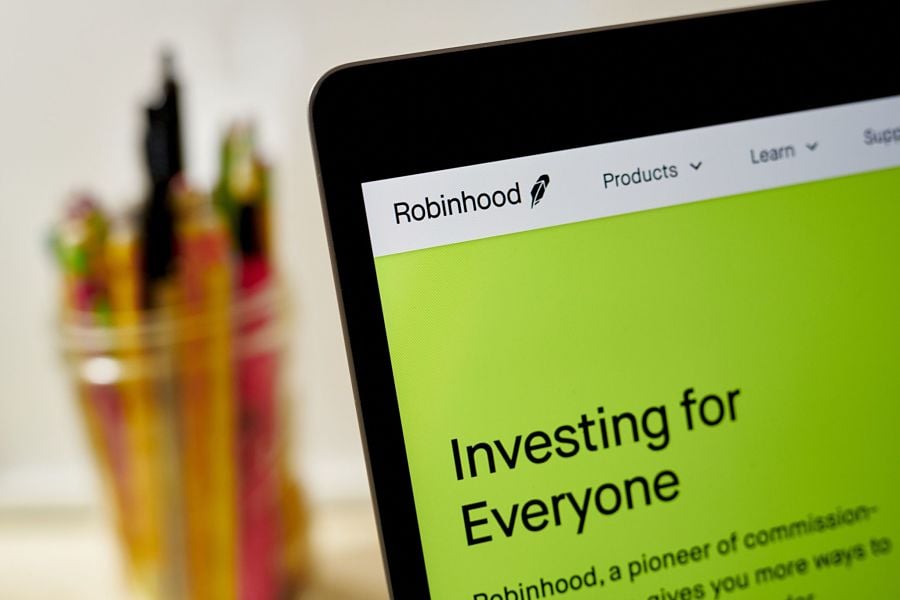

Robinhood Markets will pay $65 million to settle allegations that it failed to properly inform clients it sold their stock orders to high-frequency traders and other firms, putting a major compliance headache behind the brokerage even as new ones emerge.
The Securities and Exchange Commission fine stems from Robinhood’s decision to removed disclosures from its web site that detailed how it made money, the regulator said in a Thursday statement. The brokerage -- known for its immensely popular smart-phone app that offers commission-free trading -- from 2015 to late 2018 hid that its biggest source of revenue was funneling orders to Wall Street titans including Citadel Securities and Two Sigma Securities.
The practice led to client trades being executed at inferior prices compared with those provided by competing brokers, the SEC said.
“Robinhood provided misleading information to customers about the true costs of choosing to trade with the firm,” SEC Enforcement Director Stephanie Avakian said in the statement. “Brokerage firms cannot mislead customers about order execution quality.”
The settlement comes at a pivotal moment for Robinhood, which has exploded in popularity this year as legions of neophyte traders stuck at home during the coronavirus pandemic have flocked to its app. The company, preparing for a potential 2021 initial public offering, has been racing to strengthen its risk management and improve relations with regulators.
Still, new problems keep popping up. On Wednesday, Massachusetts securities regulators filed a complaint against Robinhood, alleging the firm violated its responsibilities to put its customers’ interests first. And the SEC and the industry’s front-line brokerage regulator are pursuing a separate investigation into how Robinhood responded to trading outages that hit the firm in March as COVID-19 fueled extreme market volatility, incidents that triggered a flood of customer complaints.
As part of Thursday’s accord with the SEC, Robinhood agreed to have an outside consultant monitor its compliance by ensuring it follows rules requiring firms to provide best execution for trades. Robinhood, which didn’t admit or deny the regulator’s claims, said it is now fully transparent in its communications with customers about how it makes money.
“The settlement relates to historical practices that do not reflect Robinhood today,” said Dan Gallagher, the firm’s chief legal officer. “We recognize the responsibility that comes with having helped millions of investors make their first investments, and we’re committed to continuing to evolve Robinhood as we grow to meet our customers’ needs.”
Gallagher, a former SEC commissioner, was brought on in May to help the company solve its regulatory issues. The firm, now worth $11 billion, has also added new compliance officers for each of its subsidiaries.
Underlying the SEC case is payment for order flow, a controversial practice employed by almost all retail brokerages in which they sell customer orders to outside market makers. Critics argue that it’s riddled with conflicts that enable high-speed traders and other firms to profit by taking advantage of retail investors. But defenders say payment for order flow improves prices for clients on the vast majority of trades.
Robinhood has profited handsomely from payment for order flow, though it didn’t widely publicize that fact until October 2018, after Bloomberg reported that the firm made almost half its revenue from selling customers’ trades.
As it finalized the SEC settlement, Robinhood was notified of the Massachusetts case, which argued that Robinhood’s app exposed users to “unnecessary trading risks” by promoting a “gamification” of stock investing to keep novice customers engaged. Robinhood has pledged to fight the claims, contending that the allegations lack merit because the firm doesn’t make investment recommendations for clients.

Analysis of four-year data shows average account balances nearly doubling among steady savers, with younger workers seeing the largest percentage growth.

Survey research shows just over half of Gen Xers satisfied with advice as retirement and economic anxieties take a toll.

Two reports reveal investor behavior including earlier participation of young Americans.

To help fund the proposal, the governor and Florida's finance chief are probing municipal finances on a "local government accountability tour" to uncover potential waste.

Edward Jones' job cuts and overall realignment internally are contributing to higher costs for the company, it said in its recent quarterly report.
Orion's Tom Wilson on delivering coordinated, high-touch service in a world where returns alone no longer set you apart.
Barely a decade old, registered index-linked annuities have quickly surged in popularity, thanks to their unique blend of protection and growth potential—an appealing option for investors looking to chart a steadier course through today's choppy market waters, says Myles Lambert, Brighthouse Financial.
